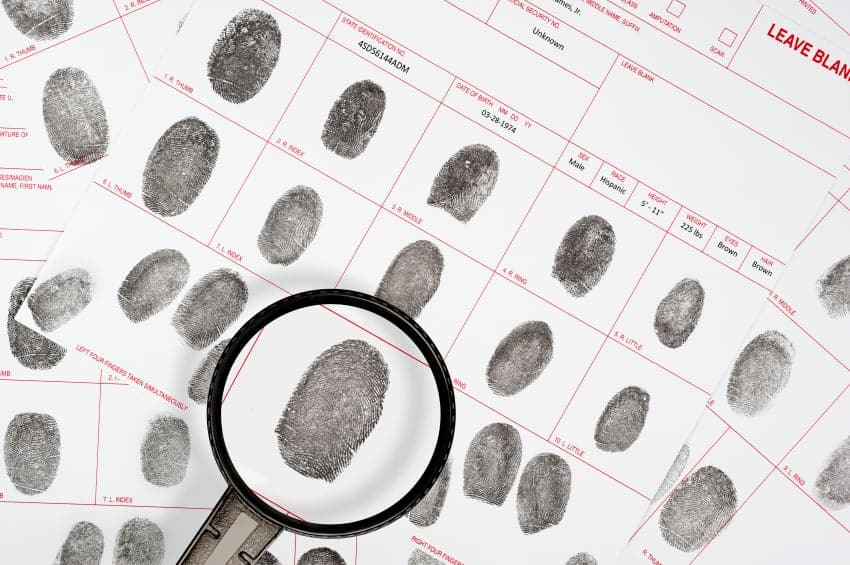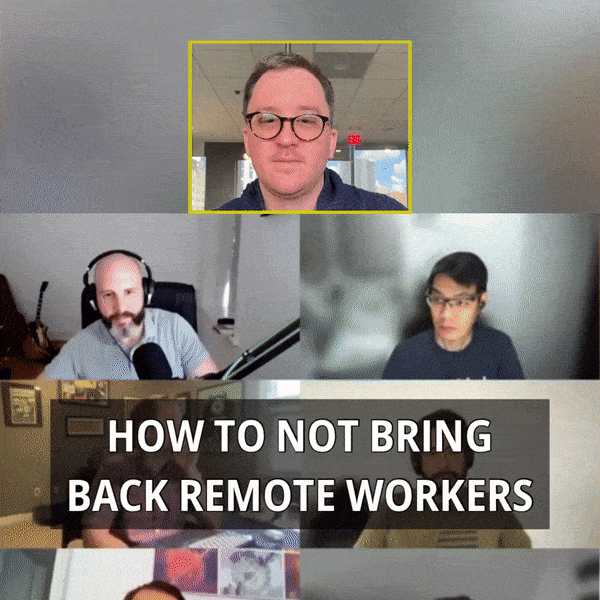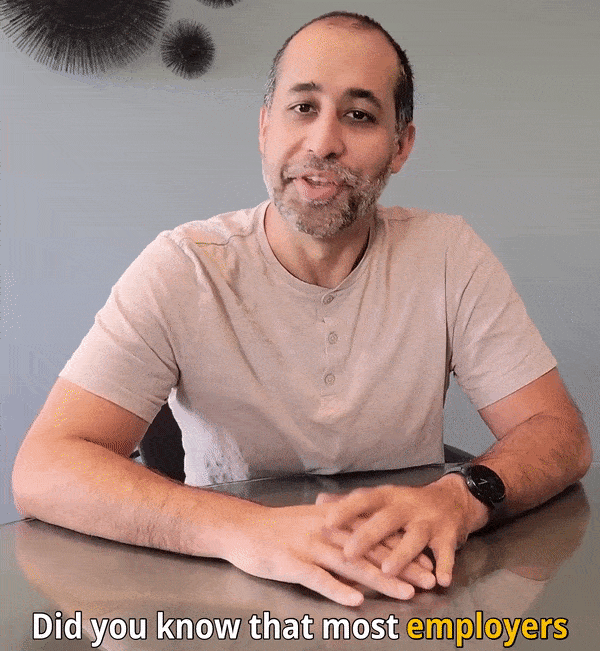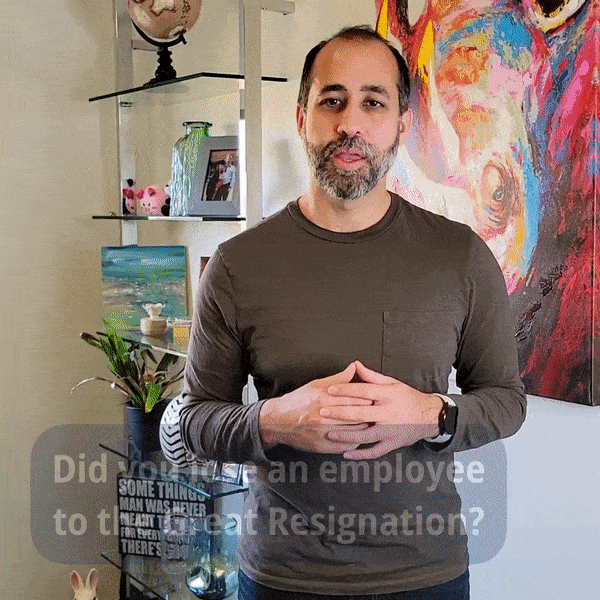Ban the Box or Fair Chance to Work laws, as they are also known, pose a dilemma for employers who want to consider the widest possible range of candidates for a job, comply with laws relating to interviewing and hiring, and yet protect themselves from the risks of a bad hire.
To one degree or another, these laws limit what and when a prospective employer can ask an interviewee about arrests and convictions. The name refers to the “have you ever been convicted of a crime and, if so, explain” check-box question on many employment applications. Most people assume that checking the box sends the application straight to the shredder.
A growing number of states have banned the question, at least on the initial application form, but the laws may impose limits that are far more extensive. There is wide variation from state to state and sometimes for localities within a state. The requirements of a local law may overlap or conflict with the restrictions of other antidiscrimination laws or statutes relating to screening. To add to the HR headache, the situation is also in rapid flux.
Policy on Both Sides
The case for banning the box. The concern about limiting the extent to which an arrest or conviction may render someone unemployable has roots in the explosion of incarceration rates in the U.S. This has been variously linked to the War on Drugs, a political push for mandatory sentencing guidelines or a proactive theory of policing, often called the “broken windows” approach.
In any event, there are now 2.2 million people in jail, an increase of 500 percent over the last thirty years. More than 70 million Americans have an arrest or conviction record. It is a problem that disproportionately affects communities of color.
Common assumptions about the fate of applications that disclose a conviction are not far from the truth. In a study conducted in New York City, for example, a criminal record reduced the likelihood of a callback or job offer by nearly 50 percent.
There is further a strong link between unemployment and recidivism. Proponents of ban the box laws argue that changes in hiring norms will help address this chronic problem and rebuild lives and communities affected by biased law enforcement.
Some employers embrace the challenge, having voluntarily abandoned the screening question years ago and, in some cases, actively seeking to hire ex-convicts.
The case against banning the box. Others are deeply concerned that hiring ex-convicts will expose businesses to a host of risks, from employee theft to lawsuits based on a tort theory of negligent hiring. An employer may face legal liability for having failed to protect customers or co-workers if they are injured by an inadequately-screened employee if the employer either knew or had a reason to know that the employee might be dangerous.
There is an argument that these laws limit the autonomy of employers, who are in the best position to understand their own hiring needs. Others cite the additional costs compliance, especially for multi-state businesses. Finally, many insist that it is unfair to saddle private sector employers with the burden of addressing the consequences of social policies that some, but by no means everyone, now reject.
Nonetheless, 17 states and over 100 cities and counties have adopted some form of ban the box laws. The Equal Opportunity Commission has reiterated that, even in the absence of a ban the box statute, interviewing and hiring procedures are covered by federal civil rights laws. In 2012, it issued detailed guidance about how employers should handle arrest and conviction information in order to comply with Title VII of the Civil Rights Act of 1964.
EEOC Guidance
Using an employee’s or applicant’s arrest or conviction record as the basis for employment decisions may violate Title VII’s prohibition on racial or national origin discrimination.
The real risk for many employers is an inadvertent violation of the law, where a facially neutral policy – a refusal to hire any convicted felon, or example – has a greater impact on certain protected classes of people and has no demonstrable relationship to the nature of the job or business. The legal term is “disparate impact liability.”
At the outset, the EEOC recommends that employers distinguish between arrest records, where there has been no determination of guilt, and conviction records that are more reliable indicators of bad behavior.
Further, to justify any criminal record exclusion, employers must be able to demonstrate that the exclusion is job related and consistent with business necessity.
The first step in demonstrating job relatedness or business necessity requires statistical analysis of the relationship between the specific criminal conduct and subsequent work performance or behaviors as set out in the EEOC’s Uniform Guidelines on Employee Selection Procedures. Very often there is no relevant data or analysis. So the actual analysis often begins with step two.
This part of the task requires that the employer consider the three factors identified by the Eighth Circuit in Green v. Missouri Pacific Railroad in 1975. These are:
- the nature and gravity of the offense;
- the time that has passed since the offense and/or completion of the sentence; and
- the nature of the job held or sought.
Under EEOC guidance, a blanket exclusion of convicted felons, for example, may be justifiable, but the employer should be prepared to demonstrate that hiring procedures comply with these standards. The employer’s best defense in this, as in many other HR situations, is a good policies and procedures handbook.
State and Local Ban the Box Laws
These, of course, operate on top of and in addition to Title VII. It is a rapidly developing area of law and, at this point, employers should assume that there very little uniformity among states or localities.
In California, AB 208 (2013) removes questions about convictions from state agency, city, county and special district job applications and postpones such inquiries until later in the hiring process. Law enforcement positions are exempted, as are other positions that require a criminal background check by law. AB 208 does not apply to private employers. However, 10 California counties and municipalities have adopted their own ban the box statutes.
San Francisco, for example, requires that public employers, private employers, vendors, and affordable housing providers remove the request for criminal history information on the initial job application for employment. An individual’s past convictions can only be considered after an applicant has been identified as a finalist for a position.
An exception exists for jobs where state or local laws expressly bar people with convictions from employment. In these situations, the city may conduct a background review at an earlier stage of the hiring process.
San Francisco employers are also required to affirmatively state in job advertisements that they will consider applicants with a criminal history. They also have to provide a notice to applicants, and give them a copy of any background check that results in a decision not to hire.
Texas has no ban the box statute, so EEOC guidance provides the default position. Both Austin and Travis County, however, have adopted laws. The Travis County statute requires removal of criminal background investigation questions from applications for county jobs.
The city of Austin’s ordinance extends the same requirement to city jobs. In Austin, for non-safety/law enforcement jobs, criminal background investigations are required only for positions that have financial responsibility or work with children, the disabled or elderly. When the job falls in one of these categories, the background investigation is undertaken only after an applicant has received a conditional offer. Individuals are also provided notice of denial.
New York State similarly has no ban the box law, but Buffalo, New York City, Rochester, Syracuse, Ulster County and Yonkers have adopted policies or ordinances.
In New York City, an executive order signed by Mayor Michael Bloomberg in 2011 prohibits city agencies from asking about an applicant’s criminal history on initial job application documents or in the initial interview.
When an agency does review an applicant’s criminal history, it is limited to considering felony convictions, unsealed misdemeanor convictions, and pending charges.
Agencies may request waivers to make additional inquiries. The city has now extended the ban the box policy to contractors doing business with the Human Services Department. These contractors may not inquire about convictions until after the first interview.
The ordinance in Seattle applies to both city and private employers. It prohibits employers from inquiring into an applicant’s criminal history until after the employer has identified qualified applicants. Employers are permitted to conduct criminal history investigations and may exclude individuals from employment based on the applicant’s criminal history if there is a legitimate business reason for doing so.
Before an employer takes a negative employment decision based on an applicant’s criminal history, the employer must identify to the applicant what information they are using to make the decision and provide the applicant with a minimum of two days in which to correct or explain that information.
Perils for Private Employers
Private employers are subject to the EEOC’s guidance about compliance with Title VII, of course. As yet, many state and local ban the box laws apply only to public employers, but the trend seems to be toward including vendors, contractors and ultimately private employers, as well.
Private employers should certainly seek local counsel familiar with local as well as state employment law. Employers would do well to keep an eye on issues beyond the box itself, including possible other affirmative requirements with regard to advertising, screening and disclosure of the reasons for any negative employment decision.




![Employers vs. Employees: When Are Employment Restrictions Fair? [e318]](https://www.pashalaw.com/wp-content/uploads/2022/05/Pasha_LSSB_EmployeesVsEmployers_banner-1-1024x723.jpg)


![The New Frontier: Navigating Business Law During a Pandemic [310]](https://www.pashalaw.com/wp-content/uploads/2020/12/Pasha_LSSB_Epidsode308_Covid_Web-1-1024x683.jpg)




![Law in the Digital Age: Exploring the Legal Intricacies of Artificial Intelligence [e323]](https://www.pashalaw.com/wp-content/uploads/2023/11/WhatsApp-Image-2023-11-21-at-13.24.49_4a326c9e-300x212.jpg)
![Unraveling the Workforce: Navigating the Aftermath of Mass Layoffs [e322]](https://www.pashalaw.com/wp-content/uploads/2023/07/Untitled-design-23-300x212.png)
![Return to the Office vs. Remote: What Can Employers Legally Enforce? [e321]](https://www.pashalaw.com/wp-content/uploads/2023/01/Pasha_LSSB_321_banner-300x212.jpg)
![Explaining the Hans Niemann Chess Lawsuit v. Magnus Carlsen [e320]](https://www.pashalaw.com/wp-content/uploads/2022/10/LAWYER-EXPLAINS-7-300x169.png)
![California v. Texas: Which is Better for Business? [313]](https://www.pashalaw.com/wp-content/uploads/2021/07/Pasha_LSSB_CaliforniaVSTexas-300x212.jpg)
![Buyers vs. Sellers: Negotiating Mergers & Acquisitions [e319]](https://www.pashalaw.com/wp-content/uploads/2022/06/Pasha_LSSB_BuyersVsSellers_banner-300x212.jpg)
![Employers vs. Employees: When Are Employment Restrictions Fair? [e318]](https://www.pashalaw.com/wp-content/uploads/2022/05/Pasha_LSSB_EmployeesVsEmployers_banner-1-300x212.jpg)
![Vaccine Mandates Supreme Court Rulings [E317]](https://www.pashalaw.com/wp-content/uploads/2022/02/WhatsApp-Image-2022-02-11-at-4.10.32-PM-300x212.jpeg)
![Business of Healthcare [e316]](https://www.pashalaw.com/wp-content/uploads/2021/11/Pasha_LSSB_BusinessofHealthcare_banner-300x212.jpg)
![Social Media and the Law [e315]](https://www.pashalaw.com/wp-content/uploads/2021/10/WhatsApp-Image-2021-10-06-at-1.43.08-PM-300x212.jpeg)
![Defining NDA Boundaries: When does it go too far? [e314]](https://www.pashalaw.com/wp-content/uploads/2021/09/Pasha_LSSB_NDA_WordPress-2-300x212.jpg)
![More Than a Mistake: Business Blunders to Avoid [312] Top Five Business Blunders](https://www.pashalaw.com/wp-content/uploads/2021/06/Pasha_LSSB_Blunders_WP-1-300x212.jpg)
![Is There a Right Way to Fire an Employee? We Ask the Experts [311]](https://www.pashalaw.com/wp-content/uploads/2021/02/Pasha_LSSB_FireAnEmployee_Website-300x200.jpg)
![The New Frontier: Navigating Business Law During a Pandemic [310]](https://www.pashalaw.com/wp-content/uploads/2020/12/Pasha_LSSB_Epidsode308_Covid_Web-1-300x200.jpg)
![Wrap Up | Behind the Buy [8/8] [309]](https://www.pashalaw.com/wp-content/uploads/2020/11/Pasha_BehindTheBuy_Episode8-300x200.jpg)
![Is it all over? | Behind the Buy [7/8] [308]](https://www.pashalaw.com/wp-content/uploads/2020/09/iStock-1153248856-overlay-scaled-300x200.jpg)
![Fight for Your [Trademark] Rights | Behind the Buy [6/8] [307]](https://www.pashalaw.com/wp-content/uploads/2020/07/Fight-for-your-trademark-right-300x200.jpg)
![They Let It Slip | Behind the Buy [5/8] [306]](https://www.pashalaw.com/wp-content/uploads/2020/06/Behind-the-buy-they-let-it-slip-300x200.jpg)
![Mo’ Investigation Mo’ Problems | Behind the Buy [4/8] [305]](https://www.pashalaw.com/wp-content/uploads/2020/05/interrobang-1-scaled-300x200.jpg)
![Broker or Joker | Behind the Buy [3/8] [304] Behind the buy - Broker or Joker](https://www.pashalaw.com/wp-content/uploads/2020/04/Joker-or-Broker-1-300x185.jpg)
![Intentions Are Nothing Without a Signature | Behind the Buy [2/8] [303]](https://www.pashalaw.com/wp-content/uploads/2020/04/intentions-are-nothing-without-a-signature-300x185.jpg)
![From First Steps to Final Signatures | Behind the Buy [1/8] [302]](https://www.pashalaw.com/wp-content/uploads/2020/04/first-steps-to-final-signatures-300x185.jpg)
![The Dark-side of GrubHub’s (and others’) Relationship with Restaurants [e301]](https://www.pashalaw.com/wp-content/uploads/2015/04/When-Competition-Goes-Too-Far-Ice-Cream-Truck-Edition-300x201.jpg)
![Ultimate Legal Breakdown of Internet Law & the Subscription Business Model [e300]](https://www.pashalaw.com/wp-content/uploads/2019/05/Ultimate-Legal-Breakdown-of-Internet-Law-the-Subscription-Business-Model-300x196.jpg)
![Why the Business Buying Process is Like a Wedding?: A Legal Guide [e299]](https://www.pashalaw.com/wp-content/uploads/2019/03/futura-300x169.jpg)
![Will Crowdfunding and General Solicitation Change How Companies Raise Capital? [e298]](https://www.pashalaw.com/wp-content/uploads/2018/11/Will-Crowdfunding-and-General-Solicitation-Change-How-Companies-Raise-Capital-300x159.jpg)
![Pirates, Pilots, and Passwords: Flight Sim Labs Navigates Legal Issues (w/ Marc Hoag as Guest) [e297]](https://www.pashalaw.com/wp-content/uploads/2018/07/flight-sim-labs-300x159.jpg)
![Facebook, Zuckerberg, and the Data Privacy Dilemma [e296] User data, data breach photo by Pete Souza)](https://www.pashalaw.com/wp-content/uploads/2018/04/data-300x159.jpg)
![What To Do When Your Business Is Raided By ICE [e295] I.C.E Raids business](https://www.pashalaw.com/wp-content/uploads/2018/02/ice-cover-300x159.jpg)
![General Contractors & Subcontractors in California – What you need to know [e294]](https://www.pashalaw.com/wp-content/uploads/2018/01/iStock-666960952-300x200.jpg)
![Mattress Giants v. Sleepoplis: The War On Getting You To Bed [e293]](https://www.pashalaw.com/wp-content/uploads/2017/12/sleepopolis-300x159.jpg)
![The Harassment Watershed [e292]](https://www.pashalaw.com/wp-content/uploads/2017/12/me-2-300x219.jpg)
![Investing and Immigrating to the United States: The EB-5 Green Card [e291]](https://www.pashalaw.com/wp-content/uploads/2012/12/eb-5-investment-visa-program-300x159.jpg)
![Responding to a Government Requests (Inquiries, Warrants, etc.) [e290] How to respond to government requests, inquiries, warrants and investigation](https://www.pashalaw.com/wp-content/uploads/2017/10/iStock_57303576_LARGE-300x200.jpg)
![Ultimate Legal Breakdown: Employee Dress Codes [e289]](https://www.pashalaw.com/wp-content/uploads/2017/08/Ultimate-Legal-Breakdown-Template-1-300x159.jpg)
![Ultimate Legal Breakdown: Negative Online Reviews [e288]](https://www.pashalaw.com/wp-content/uploads/2017/06/Ultimate-Legal-Breakdown-Online-Reviews-1-300x159.jpg)
![Ultimate Legal Breakdown: Social Media Marketing [e287]](https://www.pashalaw.com/wp-content/uploads/2017/06/ultimate-legal-breakdown-social-media-marketing-blur-300x159.jpg)
![Ultimate Legal Breakdown: Subscription Box Businesses [e286]](https://www.pashalaw.com/wp-content/uploads/2017/03/ultimate-legal-breakdown-subscription-box-services-pasha-law-2-300x159.jpg)
![Can Companies Protect Against Foreseeable Misuse of Apps [e285]](https://www.pashalaw.com/wp-content/uploads/2017/01/iStock-505291242-300x176.jpg)
![When Using Celebrity Deaths for Brand Promotion Crosses the Line [e284]](https://www.pashalaw.com/wp-content/uploads/2017/01/celbrity-300x159.png)
![Are Employers Liable When Employees Are Accused of Racism? [e283] Racist Employee](https://www.pashalaw.com/wp-content/uploads/2016/12/Are-employers-liable-when-an-employees-are-accused-of-racism-300x159.jpg)
![How Businesses Should Handle Unpaid Bills from Clients [e282] What to do when a client won't pay.](https://www.pashalaw.com/wp-content/uploads/2016/12/How-Businesses-Should-Handle-Unpaid-Bills-to-Clients-300x159.png)
![Can Employers Implement English Only Policies Without Discriminating? [e281]](https://www.pashalaw.com/wp-content/uploads/2016/11/Can-Employers-Impliment-English-Only-Policies-Without-Discriminating-300x159.jpg)
![Why You May No Longer See Actors’ Ages on Their IMDB Page [e280]](https://www.pashalaw.com/wp-content/uploads/2016/10/IMDB-AGE2-300x159.jpg)
![Airbnb’s Discrimination Problem and How Businesses Can Relate [e279]](https://www.pashalaw.com/wp-content/uploads/2016/09/airbnb-300x159.jpg)
![What To Do When Your Amazon Account Gets Suspended [e278]](https://www.pashalaw.com/wp-content/uploads/2016/09/What-To-Do-When-Your-Amazon-Account-Gets-Suspended-1-300x200.jpg)
![How Independent Artists Reacted to Fashion Mogul Zara’s Alleged Infringement [e277]](https://www.pashalaw.com/wp-content/uploads/2016/08/How-Independent-Artists-Reacted-to-Fashion-Mogul-Zaras-Alleged-Infringement--300x159.jpg)
![Can Brave’s Ad Replacing Software Defeat Newspapers and Copyright Law? [e276]](https://www.pashalaw.com/wp-content/uploads/2016/08/Can-Braves-Ad-Replacing-Software-Defeat-Newspapers-and-Copyright-Law-300x159.jpg)
![Why The Roger Ailes Sexual Harassment Lawsuit Is Far From Normal [e275]](https://www.pashalaw.com/wp-content/uploads/2016/07/WHY-THE-ROGER-AILES-SEXUAL-HARASSMENT-LAWSUIT-IS-FAR-FROM-NORMAL-300x159.jpeg)
![How Starbucks Turned Coveted Employer to Employee Complaints [e274]](https://www.pashalaw.com/wp-content/uploads/2016/07/iStock_54169990_LARGE-300x210.jpg)
